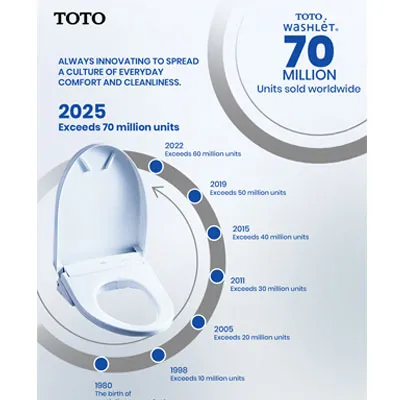Will the government’s move on banning Rs 500 and Rs 1,000 notes bring transparency in the real estate sector
09 Nov 2016
13 Min Read
Editorial Team
PM Narendra Modi announcement yesterday regarding scrapping of Rs 500 and Rs 1,000 notes has received all kinds of reactions from the real estate industry. While experts believe that the real estate sector is going to be most affected by the government’s decision, considering that it is one of the biggest receivers of black money, CW reports some industry reactions on the same.
Anuj Puri, Chairman and Country Head, JLL India:
“This will help curb unaccounted-for cash in the real estate sector. We have just witnessed a tremendous step towards increased transparency in the Indian real estate industry. The effects will be far-reaching and immediate, and shake up the sector in no uncertain way. Stricter measures against black money have for long been required to help bring about greater transparency, give the Indian real estate sector more credibility and make it more attractive for foreign investors. Black money deals are more common on the unorganized market, but this practice has, in fact, been on the decrease with greater awareness on the part of buyers. Before too long, the caricatured version of black money driving Indian real estate is no longer applicable.”
Shishir Baijal, Chairman & Managing Director, Knight Frank India: “The broader effects of this move will help the sector grow in the long run. Firstly, it will create a level playing field among all stakeholders in the sector. Institutional funding to developers, which till the present day came with a higher risk weightage is bound to see some softening with the increased transparency. Prices coming down to more reasonable levels in the residential property market cannot be ruled out. In the immediate future, the sector will be under serious pressure with volume and number of transactions in residential and land markets seeing a substantial downward trend. While it cannot be denied that the impact of this move will be felt in primary markets, secondary markets along with Tier-II and Tier-III cities will also take a hit. However, RERA and this recent move will prove to be a game changer for this sector and next year this time the real estate sector will be a totally different industry – a more evolved, transparent and a corporatized one!”
Getamber Anand, President – CREDAI National:
“Effectively, the primary market will not be disturbed as the inventory was sold to end users who avail home loans. Moreover the organised part of the RE industry has always been compliant and it is only the unorganised fly by night players who will be affected. This move will help industry to fight more effectively for removal of section 43CA of the IT act as now there is no reason to charge tax on so called deemed income to both the buyer and seller post this move.”
Rohit Gera, Managing Director, Gera Developments and VP, CREDAI , Pune Metro:
“This is a fabulous move. The impact will be huge in many markets where payment of cash is mandatory and the major form of profit taking. These markets will see a major crash making an already difficult situation even more challenging. In addition to eliminating black money this will definitely bring down corruption at least for a while. In the medium to long term the policy that emerges will determine how much corruption will return in due course.”
Sachin Sandhir, Global Managing Director-Emerging Business, RICS: “Traditionally, the preponderance of ‘black’ or unaccounted for monies in real estate – largely by way of cash transactions is seen in secondary market transactions and supply chains related to primary markets, viz, land, material, labour, etc. Secondary markets would be affected as unaccounted cash payment would no longer take place leading to some dips in sale process for assets that are sold or purchased in the short term. However, with progress of time, it will not be surprising to see prices go up as sellers come to terms with the fact that capital gains tax has to be paid on monies. Sellers are likely to factor that liability into the sale price. A closer look at the primary market would indicate that there are several components of informality within the production chain – such as purchase of land for onward development of a project. Twenty-four (24) hours earlier, a landowner could enter into an agreement with a developer where part of the consideration paid would be unaccounted. Now, since the landowner can no longer do that – he would either sit out on the land, stalling the entire development project, or charge a higher premium to maintain the same cash margins after tax. The same principle also works between developers, contractors and sub-contractors. All of this included, the input costs of developers will go up, and the only way then can respond will be by raising prices – which will affect a market already strained.”
Ashish Sarin, CEO, Alpha Corp:
“There is a widespread corruption in the system and the government had to take stern measures to weed out corruption from the grassroots level. The Prime Minister’s move along with bringing transparency in the sector would also be instrumental in easing up the approval process. Demonetisation of Rs 1,000 and Rs 500 notes would be instrumental in eradicating black money out from the transactions and will strengthen the banking channel as monies will get in to the banking system. The move however would impact the unorganised real estate players and the market will see correction in the short run but in the longer run it will benefit the overall real estate sector. I would like to state that Alpha Corp would not be impacted by this move because we have been operating on 100 per cent legit money.”
Vineet Relia, Managing Director, SARE Homes:
“This is a bold move taken by the government and we truly support the decision of moving towards cash less economy. The move will have a major impact in secondary sales especially in the high value segment. At SARE we comply to the highest standards of corporate governance and feel that RERA plus this move will heap huge benefits in the long term. In the short term there will be cash flow issues and primary sales originating through migration of customers selling older family homes for new properties will get affected. This move will also enhance confidence of global investors looking at large investments in the real estate sector."
Dhaval Ajmera, Director, Ajmera Realty:
“The decision of scrapping Rs 500 and Rs 1000 is a powerful step. As far as real estate prices are concerned, all sales transactions are through cheque so it shouldn't have any major impact in the sector. However, this move will give a sharp boost to all formal channels of payment which will help formal economy to grow. It’s definitely is an indirect advantage to honest tax payers. The deflationary impact in general and more specifically on real estate prices will be a boon for affordable home prices. The announcements will go long way in bringing economic prosperity in the lives of the common man. Additionally, it will also control inflation and black money problem will be resolved. India is now moving towards being a “Digital India”.
Munish Doshi, Managing Director, Acme Group:
“This is a big leap forward for a truly digital and modern economy to emerge given that housing sector itself contributes 5-6 per cent of India’s GDP. The professional realtors have anyways been selling property in cheque payment only for more than a decade now. If anything, this move will bring in more professionalism and organization in the sector. There are many onetime businessmen becoming part time Developers – using cash to develop/construct a single standalone building since they could deal in cash. The quality and security of such constructions are questionable. Now that this won’t be possible, we will only see organized and professional developers who are anyways favoring cheque payments growing further. It is encouraging. However in all, the organized Developers affiliated with MCHI-CREDAI will benefit in long run – although there will be a little hurdles in the sentiment of flat buyers in short run – in long term for the Real Estate Industry this is a welcome move. Even The Real Estate valuations will also see a correction now.”
Dhruv Agarwala, CEO, PropTiger.com and makaan.com:
“In the short term, real estate will suffer but in the long run it will make real estate more affordable and bring it within reach of the common person. It will also ultimately go a long way in helping real estate get a clean image.”
Anshuman Magazine, Chairman, India & South East Asia, CBRE:
“It is a bold move. While it may cause some pain in the short-term, the long-term outlook for the industry looks positive. It certainly helps that the real estate industry has already moved towards transparency in its operations. Several steps taken by the Government in recent times – from the RERA Act and GST, to REIT– combined with this announcement, will further improve transparency and increase investor confidence in the real estate market in the long run.”
Architect Ricky Doshi, Founder and CEO, ARD Studio:
“The decision will bring about a huge impact on the construction industry as well. The realty prices will witness a significant drop. This initiative will aid in bringing a transparency in the real estate industry, thus, we will be seeing a more controlled and regulated growth. The consumers will be highly benefited as there will be an end to corruption within the government departments as well.”
Ajay Jain, Executive Director, Investment Banking & Head Real Estate Group, Centrum Capital:On the positive side, he said, “Going forward, developers would be forced to conduct transactions in white money as the cash component usually involved in buying and selling has been eliminated. This would give much comfort to lenders and investors as it would weed out unaccounted cash flows from the system. Further, land acquisition quite often involved a significant portion of black money. Thus it is expected that land prices would fall gradually which would thereby bring down unit prices. It will ultimately benefit the end user and expectantly improve sales velocity and at the same time address the affordability issue the sector has been facing. And, this is another massive stride towards transparency and corporate governance in the sector in line with RERA.” On the Negative side, “Developers with sizeable land parcels will face difficulty due to the significant markdown in market valuations of their land banks. Also, share prices of real estate companies have plunged on the BSE and NSE between 5 and 15 per cent today. Large scale, high ticket transactions with higher cash components will face more difficulty. It’s a move towards eradication of corruption and bribery in the sector, particularly while obtaining approvals. However having said that, delays in approvals can be expected as the authorities are used to receiving cash to fast track the process.”
Ashwin Sheth, Chairman & Managing Director, Sheth Corp:“This move by the government will now help to curb many inconsistencies and unfair trade practices bringing professionalism in the sector. Reputed builders would not feel the pinch as they have been making use of bank channels for transactions. With the RERA Act and the demonetisation of the 500 and 1,000 currency notes, we can expect to witness positive reforms and sales growth in the affordable housing sector. This is a win-win situation for developers and home buyers.”
Abhishek Lodha, Managing Director, Lodha Group:“This step will radically transform our economy and prove that India is, in fact, a much larger and stronger economy than what is normally understood by GDP figures. Reduction of cash will place India in the same league as the more developed countries and make our economy more efficient in the long run. The professional, well organised companies in the real estate sector will significantly benefit from this move and the scourge of black money will eventually vanish from the sector and the overall economy. This will also strike at the roots of terrorism and corruption and in doing so, strengthen our nation. Over the next 12 months, lot of money will flow into financial instruments and hard assets like real estate, since people will be encouraged to disclose their earnings willingly. This is likely to improve liquidity and lowering of interest rates, all of which will help boost the economic growth. As the Prime Minister said, there may be some short term pains, but it will be hugely beneficial in the medium term.”
Anshul Jain, Managing Director-India, Cushman & Wakefield:“The government’s move is a bold and perhaps, the final step after the expiration of the ‘Income Declaration Scheme’ on 30 September 2016 to curb black money in the country. The Indian real estate market, which is largely fragmented and unorganised, has had a reputation of being a safe haven for black money and therefore we expect to see impact on the sector. The impact is likely to be seen in secondary markets for all asset classes thereby making real estate more illiquid for a period of time till the market adjusts to a new normal. The primary market which is largely driven by large developers is unlikely to get affected that much as most large and reputed developers already do not deal with cash transactions. In the short term we are also likely to see an impact on general liquidity in the market and therefore working capital needs for small and medium developers and other businesses will be lot higher. Such measures to curb black money may be drastic but will further increase transparency and credibility in the sector, at a time when the setting up of a RERA in each state is set to bring in increased accountability in the markets. We can expect to witness some amount of correction in real estate prices in markets where substantial speculative investments have been made by individuals through their black money but these are unlikely to be dramatic and limited to certain pockets.”
Jason Kothari, CEO, Housing.com:
“Cash transactions or black money deals have plagued the sector for a long time, sometimes even accounting for up to 50 per cent of transactions. This move, combined with the Benami Property Act which became effective on November 1, will help weed out corruption and black money to a large extent, from the sector. The organised segment of the market shouldn’t be majorly impacted since most homes are now bought by end-users who avail home loans. The unorganised segment which relies mostly on cash transactions, will be impacted significantly however. While this will slow down the market in the short-term, it will make India’s real estate sector more transparent and organised in the long-term, which in turn, will attract more funds, both, domestically and internationally. This is a bold and exciting development for Indian real estate.”




















